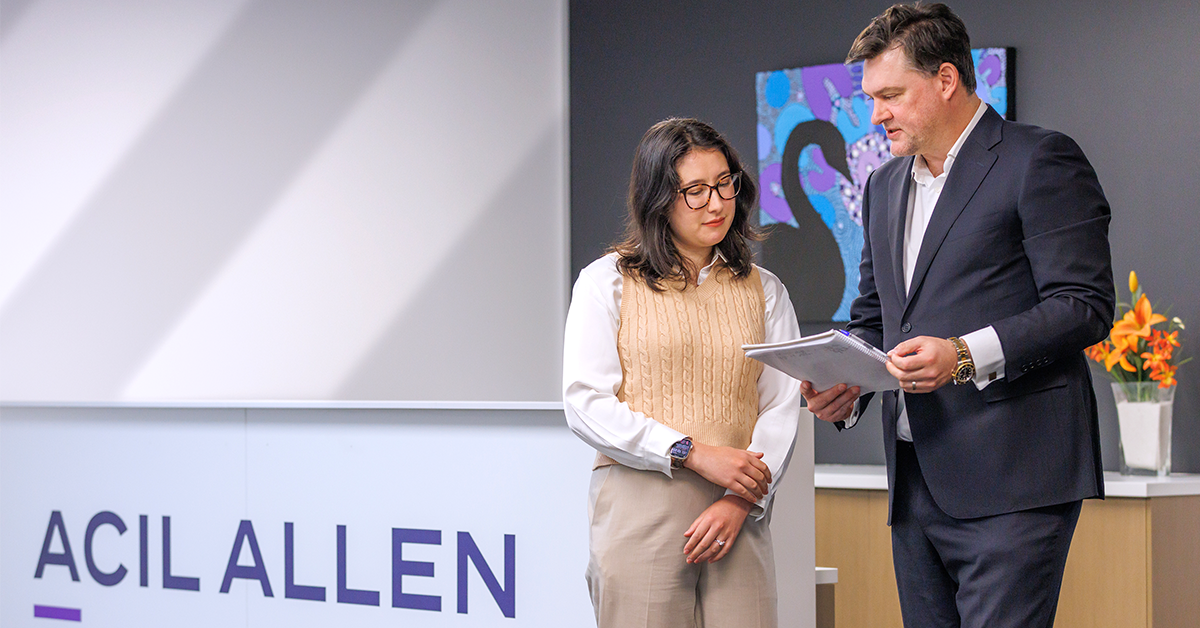
Insights

Our people at ACIL Allen lead thinking in public policy, economics and best practice socio-political management.
A cross-section of the firm's thought leadership appears on this page regularly.

Our people at ACIL Allen lead thinking in public policy, economics and best practice socio-political management.
A cross-section of the firm's thought leadership appears on this page regularly.